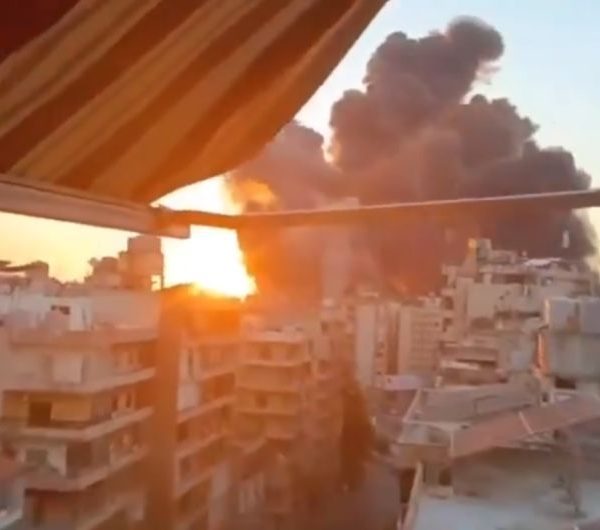
"It is still possible to avert a humanitarian catastrophe, but we must act now," said Save the Children's country director in Lebanon.
By Jake JOHNSON
An estimated 140,000 children have been displaced just this week by Israeli bombings in Lebanon, attacks that have killed close to 700 people and pushed the region to the precipice of a full-scale war.
Save the Children, a leading humanitarian group, said Thursday that the 140,000 kids forced from their homes over the past four days bring Lebanon's total number of displaced children to at least 175,000 people. Overall, half a million people have been displaced in Lebanon in the nearly 12 months of sustained violence that followed the Hamas-led October 7 attack on Israel.
Jennifer Moorehead, Save the Children's country director in Lebanon, said that "many children's lives, rights and futures have already been turned upside down and now their capacity to cope with this escalating crisis has been eroded."
"Children are telling us that it feels like danger is everywhere, and they can never be safe. Every loud sound makes them jump now," said Moorehead. "It is still possible to avert a humanitarian catastrophe, but we must act now. We urge all parties to immediately de-escalate tensions and for international actors to pressure all parties to comply with international humanitarian law. This must happen now to prevent further suffering for children and their families."
A sanitation technician identified as Mahmoud told Save the Children that he witnessed families "completely devastated" at a shelter in Beirut, the Lebanese capital to which many fled in panic to escape large-scale Israeli strikes.
"One woman was carrying her child along with several bags. Another woman's child fell from her arms. The situation was tragic, and simply heartbreaking," said Mahmoud. "People are still arriving, there are families sitting on the floor, waiting to be organized between different rooms. There was also an incredible mobilization by the community, with volunteers showing up to support, bringing pillows, bags, anything they could to help others."
Dozens of children and roughly 100 women have been killed this week by the Israeli military, which claims it is targeting the Lebanese political party and paramilitary group Hezbollah. The Associated Press reported Friday that "among many in Lebanon, there is fear that Israel's military operations in Lebanon would follow the same Gaza playbook: Evacuation orders, mass displacement, and overwhelming airstrikes."
Israeli Prime Minister Benjamin Netanyahu said Thursday that Israel's forces "will not stop" its attacks on Lebanon "until we achieve all of our objectives," rebuffing calls from the U.S. and other nations for a three-week cease-fire on the Lebanon-Israel border.
On Friday, Netanyahu's office said Israel "shares the aims of the U.S.-led initiative of enabling people along our northern border to return safely and securely to their homes" but would not commit to a cease-fire deal. Netanyahu has repeatedly tanked cease-fire efforts in the Gaza Strip, where Israeli forces have killed more than 41,500 people over the past year in an assault fueled by more than 50,000 tons of U.S.-supplied weaponry.
Israel's escalatory attacks on Lebanon and Hezbollah's rocket fire have heightened fears of a cataclysmic war. With Israel reportedly getting ready for a ground invasion of Lebanon and countries preparing to evacuate their citizens, United Nations Secretary-General António Guterres warned this week that "hell is breaking loose."
"To all sides, let us say in one clear voice: Stop the killing and destruction. Tone down the rhetoric and threats. Step back from the brink," Guterres said during a meeting of the U.N. Security Council.
An all-out war, the U.N. chief added, "would surely be an all-out catastrophe."
Original article: commondreams